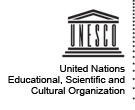Towards the multilingual cyberspace
UNESCO is pleased to announce that a new book, NET.LANG: Towards the Multilingual Cyberspace, has been published and is now available for the readers who are interested in the issues related to the promotion and use of multilingualism in cyberspace.
This publication is an educational, political and practical guide to policy and practice in the area of multilingualism in cyberspace. It provides suggestions for the creation of a cyber-presence that is open, participatory, inclusive and equitable. The authors present cyberspace as a complex and interlinked phenomenon that requires a systematic analysis and guidance on how best language policy could be established and implemented; and how teaching and working in a language, translation and interpretation, creation of content in multiple languages, contacts with people speaking different languages are vital for societal development.
For the preparation of the book, the World Network for Linguistic Diversity (MAAYA) brought together twenty leading experts in this field, who defined the range of issues to be addressed in the book. The experts from across the world contributed with articles ensuring the best possible balance of gender and age, as well as cultural, political, and technical approaches. The editorial and coordination work was done by the C&F editions.
Along with UNESCO, the Organisation international de la Francophonie, Union Latine, ANLoc, and IDRC/CRDI have contributed to the production of the book.
The paper version of the publication can be ordered on the NET.LANG website. The electronic version is available for free, under Creative Commons license by-sa: English / French.
<- Back to: News articles

